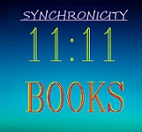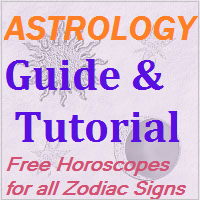
The Origins and History of Modern Western Astrology
Since the dawn of time when man first looked up at the stars and planets and was awestruck by their beauty people have tried to understand their significance. This is the basic origin of modern astrology and in part of modern astronomy. The history of astrology reaches back to antiquity and has played a part in many cultures all through out human history. The idea that events in the heavens and the sky have an effect on the affairs of people here on Earth was and among many still is widely believed. Given the importance of the obvious relation between the cycles of the Sun and Moon and the crop seasons here on Earth early man tried to improve his understanding of the movements of the heavenly bodies.
This quest for knowledge led the ancient Babylonians to make a study of the movement of the planets and other celestial bodies and in this capacity they were the first astronomers. The system the early Babylonians developed was based on simple observations and the keeping of simple written records. If a particular event such as the defeat of an enemy army coincided with the rising of a planet it was assumed the rising of the same planet at a later date would signal favorable conditions for battle. If the Moon or a planet rose or set sooner or earlier than predicted it was taken as an ill omen. Little did the Babylonians know these discrepancies were the result of errors in their records due to the lack of precise astronomical instruments such as the telescope which was not invented until many centuries later.
The spread of the Babylonian study of the sky through the middle east and into Europe was accelerated when it was absorbed and expanded upon by the ancient Greeks. The modern word horoscope is derived from the Greek word horoscopes which actually means the ascendant. The most important contribution the Greeks made to astrology is the concept that much can be learned about an individuals future or fortunes by the position of the stars and planets at the time of their birth. This is known as horoscopic astrology and is the basis of the western astrological tradition. Many of the famous ancient Greek mathematicians and philosophers including most notably Ptolemy himself studied astrology which was in a sense the astronomy of their day. Their contributions to modern western astrology also include an exact solar calendar with standardized houses and the twelve sun sign of the zodiac. Just as significantly the Greek astronomer Hipparchus discovered the precession of the equinoxes.
During the middle or dark ages astrology like many other arts and sciences was more or less lost for a time. It was not until the Renaissance that astrology and many other lost works were returned to Europe from Arabia where much of it had first originated. Combined with the advent of more modern scientific astronomical instruments including of course the telescope the Renaissance astrologers were able to chart the stars and planets with greater accuracy then ever before. They included the celebrated Galileo Galilei, Tycho Brahe and Johannes Kepler who not only practiced astrology but laid the foundations of modern astronomy.
The past one hundred years has seen a great rise in interest about astrology and a great demand for horoscopes. The new mass media has provided widespread access to astrology and horoscopes are now published in newspapers, magazines and the internet. The latest astronomical technology has been put to use producing ever more accurate star charts and new planets have even been discovered and incorporated into the astrological techniques. Today astrology is more popular than ever before with about one third of the people saying they believe in it. The effect of astrology on the course of human history is difficult to estimate but astrology is certain to be practiced well into the future.
see also:
The History of Astrology
|
Basic Understanding of Astrology and Horoscopes
|
Exploring the Inner Workings of Astrology







